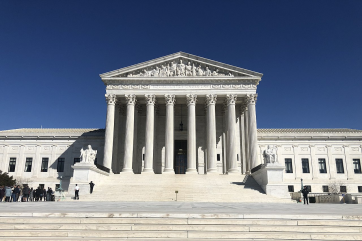University of Montana Sexual Harassment Policy Awaits DOJ and OCR Approval Two Months After Deadline
By Russell WesterholmAfter the University of Montana (UM) agreed to revise a policy containing and ultra-broad definition of sexual harassment, it has yet to be formally approved by the two government agencies that helped draft and revise it.
According to a news release from the Foundation for Individual Rights in Education (FIRE), the U.S. Department of Justice (DOJ) and the Education Department (ED) Office of Civil Rights (OCR) have yet to approve the UM's new policy.
The DOJ and OCR originally helped the school draft what they called a "blueprint" for universities and colleges in crafting a sexual harassment policy. However, FIRE led a coalition that spoke out against it because the proposed "blueprint" contained restrictive language against student's right to free speech.
After gaining national attention and criticism from Sen. John McCain (R-Ariz.) for the settlement agreement in May, the DOJ and OCR agreed to revise its policy so it would observe "free speech requirements for students and employees."
In a settlement agreement for revising the original policy, the two departments said they would approve it by July 15. Now it is practically two months past that deadline and UM has began its academic semester without the policy being approved.
"FIRE is cautiously optimistic that the University of Montana's new policy represents a departure from the frighteningly overbroad standards the Departments of Justice and Education announced this May," said FIRE President Greg Lukianoff. "Montana's policy defines harassment more narrowly than the blueprint, resuscitates the 'reasonable person' standard, and consistently emphasizes both free speech and academic freedom. All it needs is official approval."
The main differences in the revision are in the language. Before, the policy stated any unwanted speech could be considered harassment, but the policy now dictates it "can" be considered harassment. The coalition argued that "any" unwanted speech could be unfairly interpreted by the recipient. The original policy also discounted the "reasonable person standard," which protects against such an occurrence.
"The University of Montana's new policy is not perfect, but it is significantly clearer and more cognizant of student and faculty expressive rights than the federal government's May directive," said FIRE Director of Legal and Public Advocacy Will Creeley. "FIRE calls on the Departments to approve the new policy, retract the blueprint, and issue new, clear guidance that follows Supreme Court precedent and mandates a constitutional definition of sexual harassment."
FIRE is a civil rights watchdog organization that focuses on protecting free speech on college campuses.
(This article was revised to fix an inaccuracy about FIRE helping the DOJ and OCR revise UM's policy).








